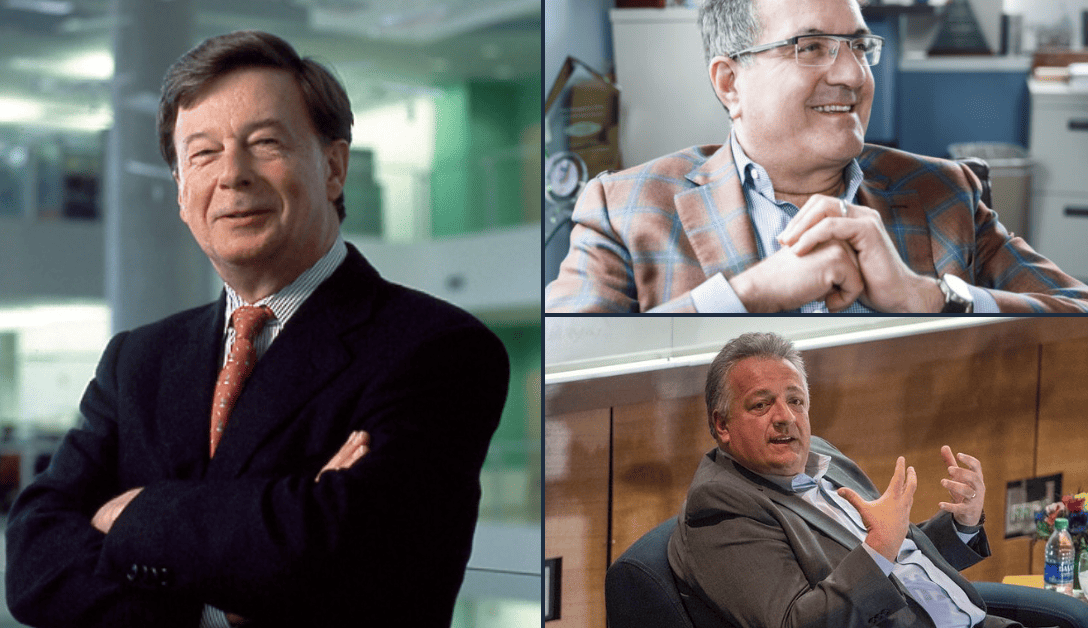Noubar Afeyan says, “Scientific innovation is heavily limited by reasonableness. How can you expect extraordinary results from reasonable people doing reasonable things?
Everybody’s looking for extraordinary outcomes, but they constantly want to figure out whether every single step is the right, reasonable one.
People go ask key opinion leaders, they do what’s called due diligence and there’s this massive crowdsource reasonableness filter. And yet they expect extraordinary results…
I learned a long time ago, that if you aspire to extraordinary results, you’ve got to be comfortable with being unreasonable—and persistently so.
So you might say, ‘Well, then, if you’re unreasonable, does that mean you get extraordinary results?’ Of course, not; it’s not reversible… And that’s where the evolutionary approach comes in…
You first project yourself to things and places that people consider unreasonable in terms of what you’re proposing to do or are willing to do…
But then what makes you survive is recognizing that when you get there, you can do variation and selection and look for what survives.” — Noubar Afeyan, Founder and CEO at Flagship Pioneering
—
John Maraganore quotes George Bernard Shaw every day while mentoring new biotech CEOs, “The reasonable man adapts himself to the world; the unreasonable one persists in trying to adapt the world to himself. Therefore all progress depends on the unreasonable man.” He even includes this quote in his email signature!
At the same time, when I asked him recently, what is some advice that you give to CEOs again and again, he replied: “I tell them that they have to be truth seekers. They have to follow the science and what the results are showing them. They have to be objective. Sometimes I’ve seen leaders who become overly zealous around their science and technology and often delude themselves.
Do the right things, follow the science, but also create some optionality. Maybe the road that you’ve got put on is not the road that you may have to stay on forever. When you’re pioneering a whole new approach/modality, you can see yourself as an explorer in a new world. Look at everything that’s there, use all the tools, be curious and observant. Especially in the early days, you have to keep options open, and when you find where you need to go, when you find that opportunity, then you need to focus.” — John Maraganore
—
Henri Termeer believed in a similar approach to John’s but used a different term to say “explorer”.
Henri believed in “being opportunistic”, and strategic plans got in the way of that. The more formalized a plan you had, the more it interfered with communication. “You wanted to be nimble and opportunistic”, he would say, “not bureaucratic”.
Henri hesitated in accepting detailed forecasts beyond 18–24 months. He believed that an overreliance on long-term planning could be paralysing.
When Henri focused on Gaucher disease, he placed a too unreasonable bet, but he had a piece of data that motivated him to pursue it:
“Many people would say to me, are you kidding me? This can’t work. The reason was that we needed 20,000 placentas, 20,000 kids to be born, to treat one patient for a year. Well-known Harvard names said to me we couldn’t bet the company on one patient. We ignored them. Because I saw the kid, I saw the family, I saw the difference! So, we went out to raise the money…”
—
The way I see it is… you should never “land yourself” first, you have to let science or life “land you” when you’re being too unreasonable in your approach!
But the first default step should always be an unreasonable one. What if? It may sound crazy, but why don’t we give this a try?
